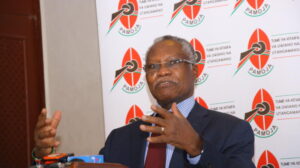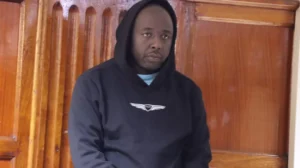The death of Albert Ojwang, a 31-year-old teacher and social media influencer, has triggered serious concerns about the role and effectiveness of the Independent Policing Oversight Authority (IPOA) under its chairperson Isaac Hassan.
Ojwang died on June 8, 2025, after being taken into police custody. According to reports, he was arrested in Homa Bay and later moved to Nairobi’s Central Police Station. However, a report by The Star revealed that he was taken from his cell to Karura Forest, where he was tortured, beaten into a coma, and later returned to the station unconscious.
He was then taken to hospital, where he was pronounced dead. A post-mortem report confirmed that his death was caused by blunt force trauma, which completely contradicts the police claim that Ojwang injured himself.
This case has placed IPOA in the spotlight, with many Kenyans questioning whether the agency is still able to carry out its duties without influence. Isaac Hassan has publicly promised that IPOA will investigate the incident thoroughly and ensure justice is served. But many Kenyans are not convinced. IPOA has a history of failing to hold police officers accountable, and several past reports have described the authority as weak and ineffective. In 2019, The Elephant published a report that criticized IPOA’s slow and inconsistent responses to police brutality.

More recently, The Standard called IPOA a “toothless bulldog,” saying it does little to inspire confidence among ordinary Kenyans.
The situation has been made worse by signs that IPOA may not be acting independently. For example, when Isaac Hassan appeared alongside senior police officers to give updates on the case, it raised questions about whether he was too close to the very people he is supposed to be monitoring.
Adding to the concern, IPOA officials have admitted they are understaffed and under-resourced. In February 2025, Hassan said the authority does not have the capacity to investigate all complaints, including abductions.
This admission, especially in such a high-profile case, only deepens public skepticism. What has angered many people further is the tampering of CCTV footage from the Central Police Station, which was a key part of the investigation. IPOA’s deputy chairperson confirmed this during a Senate hearing, yet no serious action has followed.
Kenyans are now calling for the arrest of Deputy Inspector General Eliud Lagat, whose complaint reportedly led to Ojwang’s arrest. Many believe he should also be held responsible, especially since the case appears politically motivated and involved excessive use of force.

Protests have broken out in Nairobi and other towns, with activists and ordinary citizens demanding answers. Raila Odinga and other political figures have condemned the incident, pointing out that it damages the credibility of the police and weakens public trust in government institutions.
At the same time, IPOA has yet to offer solid proof that it is capable of delivering justice. Its record of handling such matters has not been convincing in the past. In 2021, a report showed that over 100 people were killed or tortured by police, yet IPOA managed very few successful prosecutions.
The problem seems to be both structural and leadership-related. IPOA was formed to investigate and stop police misconduct, but it still relies heavily on the police to collect evidence and carry out basic tasks. This creates a serious conflict of interest.
Since Isaac Hassan took over in December 2024, many hoped things would improve. But his statements and actions so far have not convinced the public that real change is coming. Instead, people feel that IPOA is overwhelmed, too connected to police leadership, and unable to deliver real justice.
The death of Albert Ojwang might become a defining moment for IPOA. If the authority fails to deliver justice in this case, it risks losing whatever public trust it has left.





















Add Comment